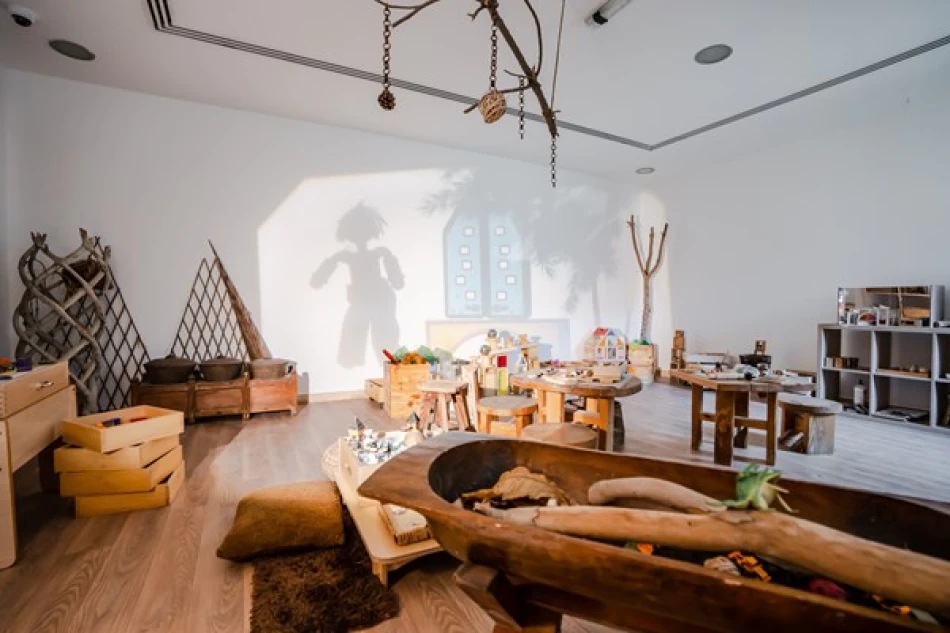
Odyssey Preschool: Pioneering Reggio Emilia Approach in UAE's Early Childhood Education
Why UAE's Odyssey Nursery Is Betting on Human Skills Over AI in Early Childhood Education
As artificial intelligence reshapes the global workforce, one Dubai nursery is doubling down on uniquely human capabilities. Odyssey Nursery has become the first institution in the UAE to fully implement Italy's renowned Reggio Emilia approach, prioritizing emotional intelligence, creativity, and critical thinking over traditional academic drilling—a strategic bet that these irreplaceable human skills will define the next generation's success.
The Anti-AI Education Philosophy
While most educational institutions rush to integrate technology, Odyssey Nursery is moving in the opposite direction. The Dubai-based facility, operated by Kids First Group, has adopted the Reggio Emilia methodology—a child-led learning approach that originated in post-World War II Italy and emphasizes creativity, community, and critical thinking.
"Artificial intelligence can simulate knowledge, but it cannot simulate curiosity, empathy, or imagination," explains Janet Ghanem, Director of Odyssey Nurseries in Dubai. "These are the qualities we believe will distinguish the next generation."
This philosophy reflects a growing global trend among educators who argue that as AI handles routine cognitive tasks, human skills like emotional intelligence and creative problem-solving become more valuable, not less.
Beyond Traditional Learning: The Reggio Emilia Difference
Learning Through "Hundred Languages"
Unlike conventional nurseries that rely on worksheets and structured lessons, Odyssey's approach centers around what Reggio Emilia calls the "hundred languages of children"—multiple ways of expressing ideas through clay, light, movement, storytelling, and nature exploration.
Children might spend weeks investigating questions like "What happens to waste?" leading to deep dives into sustainability, storytelling, and collaborative problem-solving. The learning emerges organically from children's curiosities rather than predetermined curricula.
The Atelier: Where Recycled Materials Become Innovation Labs
At the heart of Odyssey's philosophy lies the "Atelier"—a creative workshop filled with recycled and natural materials like wood, fabric, bottle caps, cardboard, and pebbles. Here, children design cities from boxes, sculpt emotions with clay, and create theatrical performances with self-transformed objects.
This approach mirrors innovation methodologies used in top design firms and tech companies, where constraint-based creativity and iterative problem-solving drive breakthrough solutions.
Market Implications: Preparing for an AI-Dominated Economy
Odyssey's investment in human-centric education aligns with economic forecasts suggesting that jobs requiring emotional intelligence, creativity, and complex problem-solving will be among the few immune to AI displacement. According to recent studies, roles in creative industries, human services, and collaborative leadership are expected to grow even as automation advances.
The nursery's approach also reflects broader educational shifts in countries like Finland and Singapore, where policymakers are redesigning curricula to emphasize skills that complement rather than compete with artificial intelligence.
Regional Context: UAE's Educational Innovation Push
Odyssey's full implementation of Reggio Emilia—complete with ongoing training from Italian experts—positions it uniquely in the UAE's competitive early childhood education market. While other regional nurseries have adopted elements of progressive pedagogies, few have committed to comprehensive alternative approaches.
This timing coincides with the UAE's broader push toward becoming a global innovation hub, with government initiatives emphasizing creativity and entrepreneurship alongside traditional academic excellence.
The Community-Centered Learning Model
Following Reggio Emilia's "village approach," Odyssey treats parents as active educational partners rather than passive consumers. Families regularly participate in projects and discussions, while detailed documentation of children's learning journeys—through photos, dialogues, and artwork—fills classroom walls.
The physical environment itself serves as the "third teacher," designed to stimulate curiosity, encourage interaction, and promote independence. This holistic approach contrasts sharply with traditional models where learning happens primarily through direct instruction.
Long-Term Developmental Outcomes
Research on Reggio Emilia graduates suggests significant advantages in communication skills, emotional intelligence, critical thinking, and collaborative problem-solving—precisely the capabilities most valued in leadership roles and creative industries.
More importantly, these children develop what educators call "learning how to learn"—metacognitive skills that enable lifelong adaptation and growth. As career paths become increasingly unpredictable, this flexibility may prove more valuable than specific technical knowledge.
The Bigger Picture: Redefining Educational Success
Odyssey's approach represents a fundamental challenge to conventional educational metrics. Instead of measuring success through standardized test scores or early academic achievement, the Reggio Emilia methodology prioritizes emotional regulation, creative expression, and collaborative problem-solving.
As Huda Al-Naddaf, Odyssey's Reggio Emilia Approach Director, notes: "Reggio doesn't just prepare children for school—it prepares them for life."
This philosophy may seem radical in education systems obsessed with measurable outcomes, but it reflects a growing recognition that traditional academic preparation may be insufficient for navigating an AI-transformed economy where human creativity, empathy, and adaptability become the ultimate competitive advantages.
Most Viewed News

 Layla Al Mansoori
Layla Al Mansoori






